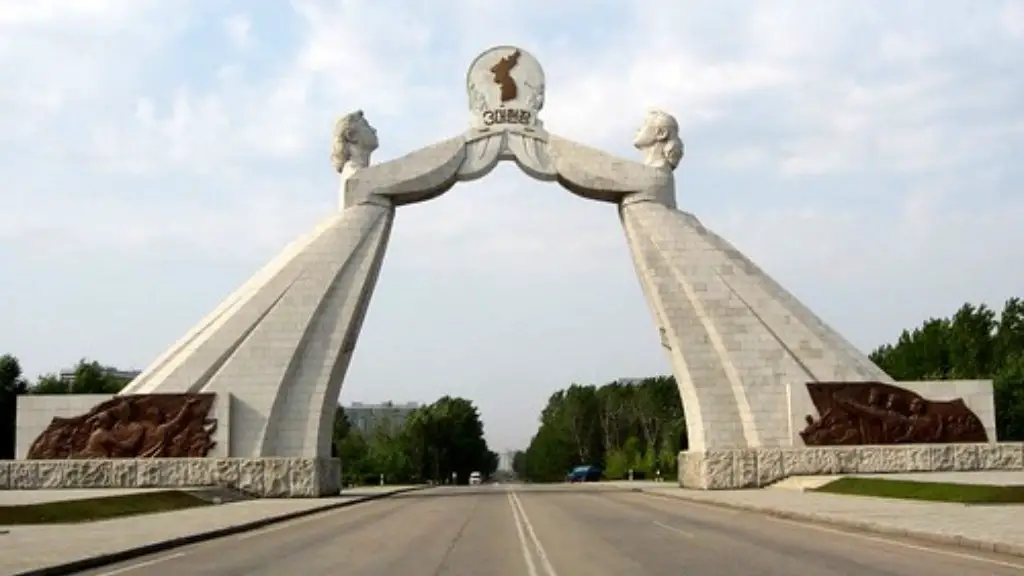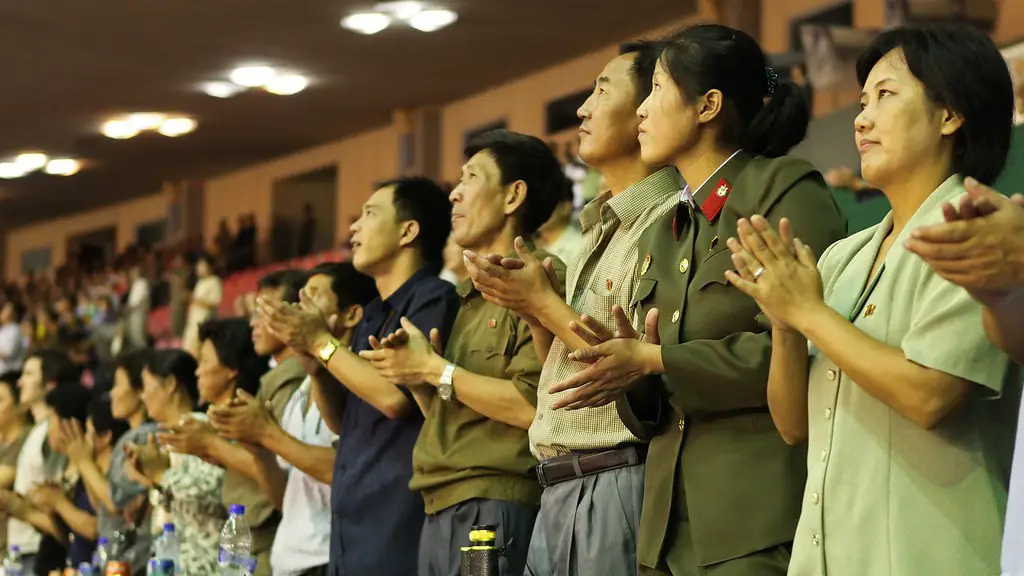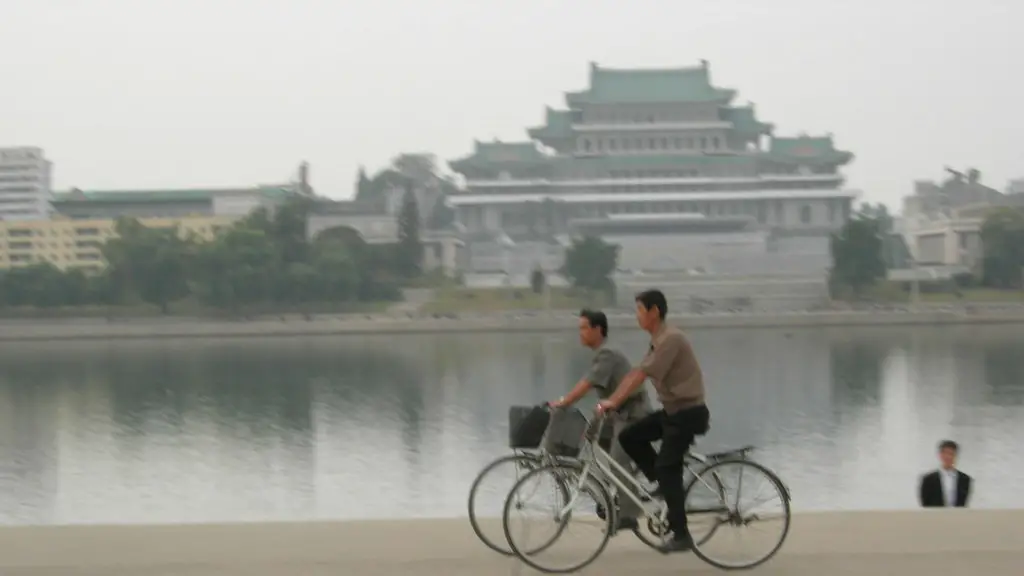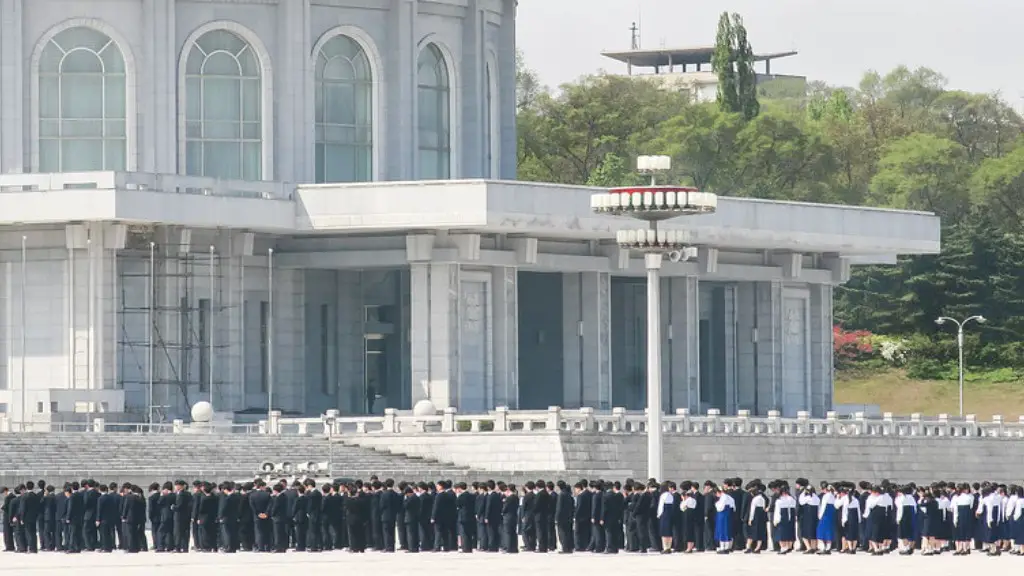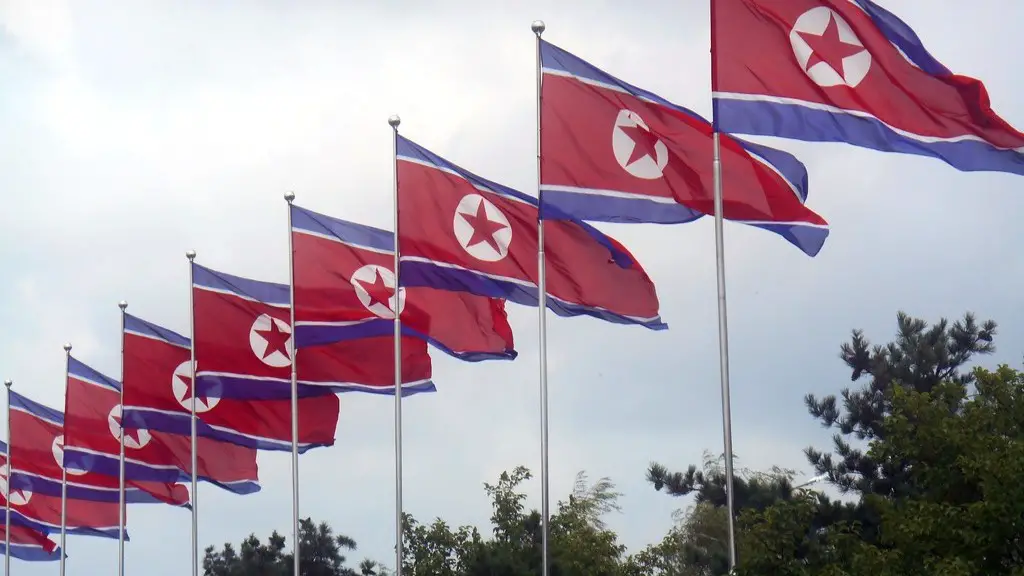Most people are familiar with the perception of North Korea as a closed-off, authoritarian state. But beyond this, there is very little understanding of what North Korea is like — what life is like for those who live there. Unfortunately, the North Korean government has placed severe restrictions on outside access, making it difficult to get a complete picture. That said, there are still some facts and stories that can be pieced together to provide an idea of what North Korea really is.
One of the most notable features of North Korea is its extreme poverty. For decades, the country has experienced a shortage of food, energy, and other resources. According to the World Food Program, 6 million North Koreans are food-insecure and more than a third of citizens are undernourished. The economic situation is so dire that the average income of North Koreans is estimated to be only $600 per year.
The situation is made worse by the oppressive policies of the North Korean government. The government has a fearful and controlling attitude towards its citizens, and has been known to use violence and torture to maintain its power. This has resulted in a culture of fear and distrust, with many North Koreans afraid to speak out or challenge the government in any way. As a consequence, political dissent is almost nonexistent, and the government is able to maintain a tight grip on power.
Although most North Koreans live in poverty and fear, there is still a small but growing middle class in the more developed cities, such as the capital Pyongyang. This group has access to more resources and amenities, and is able to enjoy a life that is relatively comfortable compared to those in the countryside. This is aided by the support of the government, which gives preferential treatment to the most loyal citizens. The government has also attempted to increase foreign investment and development, although this has been hampered by international sanctions.
Despite these difficulties, North Koreans still remain incredibly resilient and resourceful. Many rely on informal economies and black markets to make ends meet and survive. There are even stories of North Koreans creating their own businesses and thriving despite the difficult conditions. This spirit of entrepreneurship and self-sufficiency is not often seen in other authoritarian states, and the resourcefulness of North Koreans should not be underestimated.
Education
Education is valued highly in North Korea, and the government makes it a priority to provide universal access to schooling and universities. As a result, literacy rates in North Korea are among the highest in the world, and the educational system is highly praised. Students are encouraged to memorize and regurgitate information, with an emphasis on Marxist-Leninist ideology and the worship of the nation’s leaders. In addition, there is a strong emphasis on sports, with students expected to participate in daily physical activity.
Nevertheless, the limited resources of North Korea often impede the quality of education. Schools lack basic supplies, such as textbooks and equipment, and this can sometimes make it difficult for students to learn. In addition, the focus on ideology means that most students are not exposed to the outside world or to views contrary to those of the government. As a result, North Koreans are not always able to think for themselves or form their own opinions.
Healthcare
Access to healthcare in North Korea is a major issue. Despite recent developments, the healthcare system remains rudimentary and grossly inadequate. Medical facilities are often outdated and lack the necessary supplies, leading to poor outcomes from medical procedures. In addition, the healthcare system is heavily controlled by the government, with citizens required to obtain special permission to visit a doctor.
In addition, the population of North Korea is often underserved. According to the World Health Organization, health promotion and disease prevention efforts are few, and people are often unaware of simple hygiene measures and the risks posed by communicable diseases. This has resulted in some of the highest rates of tuberculosis and HIV/AIDS in the region, as well as a high infant mortality rate.
Technology
Modern technology is surprisingly abundant in North Korea. Internet access is available in most cities, although the access is heavily restricted and monitored by the government. This means that most North Koreans cannot access the global internet, but that they can still access a “walled garden” of approved North Korean websites. North Koreans also have access to mobile phones and other modern devices, although the cost of these is prohibitively expensive for all but the most affluent citizens.
Due to their limited access to the global internet, North Koreans are often behind on the latest trends and technologies. This has made them somewhat of a digital hermit in the 21st century, with some of the most basic technologies — such as streaming video — still out of reach for most citizens.
Culture & Entertainment
Despite the lack of access to global entertainment, North Korea has an active and vibrant internal culture. The country boasts an extensive cinematic industry, with many films focused on glorifying the country and its leaders. North Korea also has a number of state-run television channels and radio stations, although these are heavily censored and rarely feature global content.
In addition, the country has a thriving music industry, with popular Korean singers often performing live and on television. North Koreans are also passionate about sports, with the country boasting several professional football, basketball, and volleyball teams. Despite all this, North Koreans often find themselves turning to smugglers and black markets for supplies of foreign entertainment.
Political Environment
The politics of North Korea are complicated and often confusing, with the country being viewed by much of the world with suspicion and mistrust. International relations have been strained recently, as the country continues to develop its nuclear capabilities and refuses to open itself up to outside scrutiny. In addition, the government has been accused of a number of human rights abuses and continues to restrict the freedom of its citizens.
Nevertheless, the North Korean government is making some small steps towards reform. Recently, the country has opened up some international trade and allowed foreign journalists to visit the country. This has been met with some skepticism, as most believe that these moves are simply window dressing for the regime and that there is still much work to be done in terms of improving the rights of the North Korean people.
Religion
Religion is heavily suppressed in North Korea, with freedom of worship being restricted and churches, temples, and other places of worship actively discouraged. That said, there are still a small number of religious groups that are able to practice their faith within the country, albeit under heavy surveillance. These include a number of Protestant and Catholic churches, as well as Buddhist temples and even a small Jewish community.
In general, however, North Korea is a secular state and religion is not a large part of everyday life. This is surprising as the country was once deeply religious, with a rich spiritual history of Shamanism, Confucianism, and Buddhism. Unfortunately, this history has all but been erased by the state, and most North Koreans now identify as non-religious or atheistic.
Conclusion
North Korea remains a mysterious and largely misunderstood country. Even though it is often viewed with suspicion, North Koreans remain incredibly resilient and resourceful. Despite the poverty, oppression, and isolation, many North Koreans are still able to thrive and lead meaningful lives. Until international relations improve and the country is opened up to the world, it may remain a mystery to outsiders.
